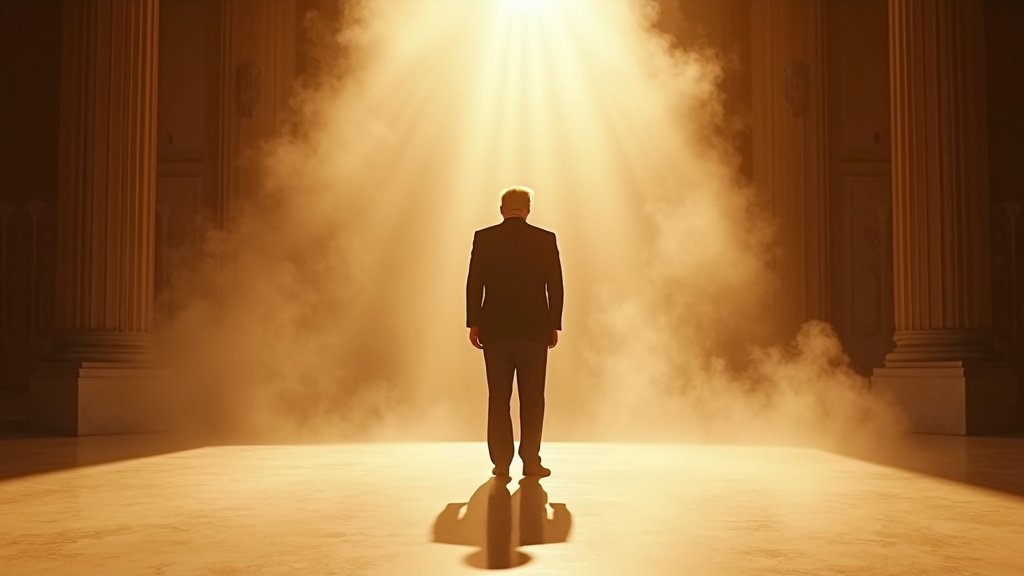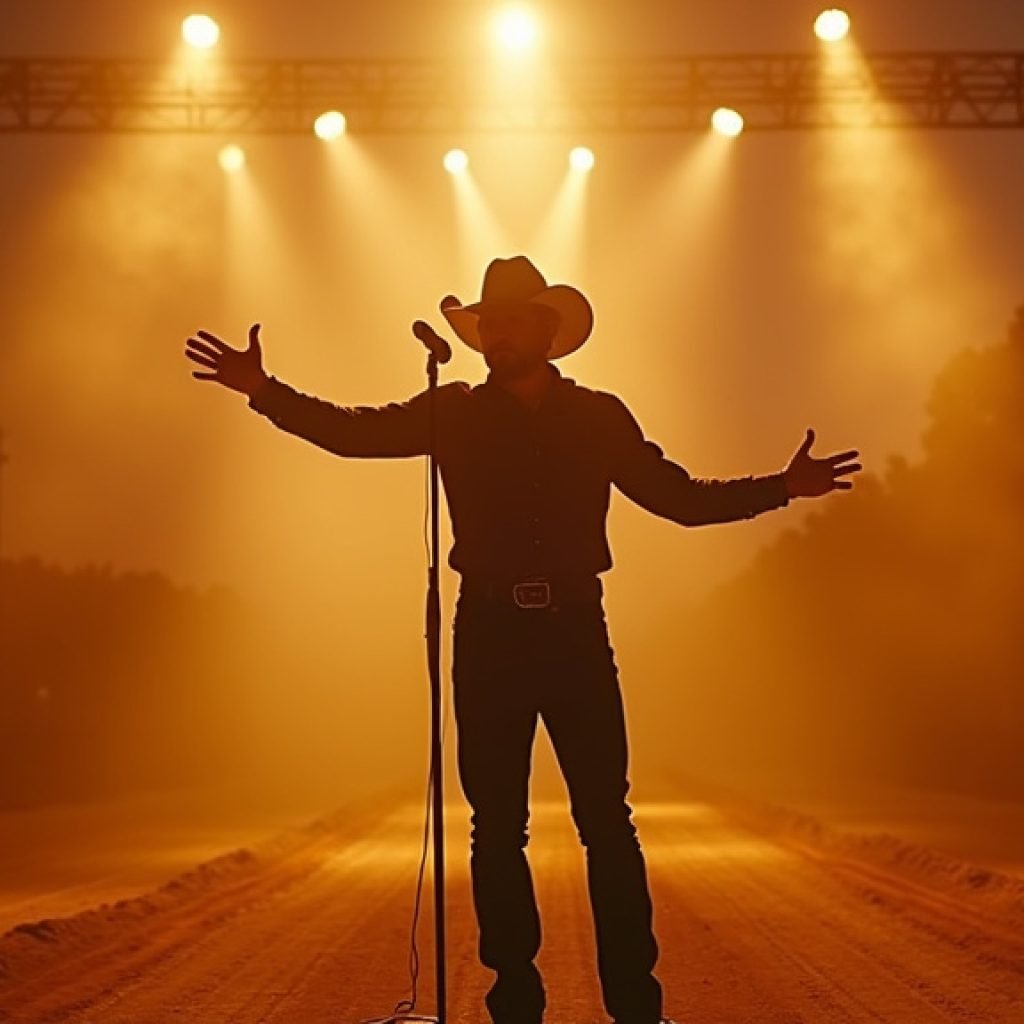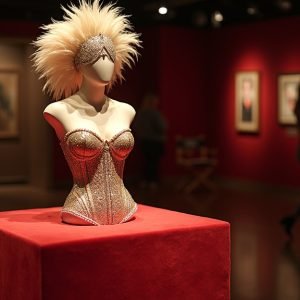In a seismic shift for one of America’s most prestigious arts awards, President Donald Trump has officially announced his initial slate of nominees for the Kennedy Center Honors, confirming he will personally host the gala as the institution’s newly appointed chairman. The unexpected move marks a dramatic departure for the annual ceremony, which has previously seen presidents maintain a more arms-length role.
The diverse list of artists selected for this year’s accolades signals a new direction for the cultural landmark. Among those set to be honored are legendary country music star George Strait, iconic actor Sylvester Stallone, disco queen Gloria Gaynor, the world-renowned rock band KISS, and acclaimed actor-singer Michael Crawford. This curated group reflects a broad spectrum of American performance and promises a vibrant, albeit potentially controversial, evening of celebration.
A New Era for the Nation’s Arts Leadership
The President’s decision to personally host the Kennedy Center Honors is a significant development, especially given his past avoidance of the program. Historically, presidents have attended or hosted the event intermittently, but none have taken on the role of chairman with such direct involvement. This unprecedented level of engagement fundamentally redefines the relationship between the White House and the independent arts institution.
Sources close to the administration confirm that Trump has not only assumed the chairman position but has also systematically replaced the center’s long-standing board of trustees with a cohort of his loyalists. This strategic overhaul allows for a direct influence on the center’s operations and artistic direction, a stark contrast to the traditional model of arm’s-length governance that has long characterized the institution. The consolidation of power under the President’s direct purview is poised to reshape the future of the Kennedy Center and its role in American cultural life, promising a fresh wave of news from the capital’s arts scene.
The Honorees: A Mix of Mainstream and Mirth
The selection of honorees for this year’s Kennedy Center Honors reveals a deliberate effort to embrace a wide range of popular culture figures. George Strait, often hailed as the “King of Country” for his unparalleled success in the country music genre, represents a cornerstone of American popular music. His inclusion is likely to resonate deeply with fans of traditional country sounds across the nation.
Joining him is Sylvester Stallone, an actor whose indelible mark on cinema through roles like Rocky Balboa and John Rambo has cemented his status as a global action icon. His presence underscores a focus on mainstream appeal and enduring entertainment.
Gloria Gaynor, the voice behind the enduring disco anthem “I Will Survive,” brings a powerful message of resilience and an undeniable legacy in dance music. Her selection adds a touch of classic pop and disco flair to the roster.
Perhaps the most unexpected choice is the inclusion of the theatrical rock band KISS. Known for their elaborate stage costumes, face paint, and pyrotechnics, KISS has been a dominant force in rock music for decades, building a massive and devoted fanbase. Their selection signals a willingness to honor artists from the harder edges of the music spectrum, a move that might surprise traditionalists but delight rock enthusiasts.
Rounding out the initial list is Michael Crawford, the acclaimed British actor and singer, best known for originating the role of the Phantom in Andrew Lloyd Webber’s “The Phantom of the Opera.” His inclusion acknowledges significant contributions to musical theatre and performance, bringing a classical theatrical presence to the contemporary lineup of awards recipients.
Presidential Imprint: A Hand-Picked Selection
President Trump has not shied away from revealing his direct hand in the selection process for this year’s honorees. He openly stated his significant involvement in the choices, a departure from the more arms-length process of past administrations where recommendations typically flowed through committees and boards. Even more notably, the President indicated that he personally rejected several nominees he deemed “too woke.”
This explicit declaration of filtering potential honorees based on perceived political or ideological leanings marks an unprecedented level of political interference in what is traditionally a celebration of artistic merit, irrespective of personal beliefs. The President’s direct intervention in culling individuals he deemed ideologically unsuited suggests a conscious effort to shape the cultural narrative reflected by the awards and the institution itself. This approach could set a new precedent for how future Kennedy Center Honors classes are curated, injecting a distinct political lens into the artistic recognition process.
The Future of the Kennedy Center: A Potential Rebranding?
Beyond the honoree selection and his active chairmanship, President Trump has also hinted at a potential name change for the Kennedy Center itself. While no specifics were provided, this suggestion opens up a broader discussion about the institution’s identity and its future under his leadership. Such a move would be deeply symbolic, potentially severing ties with its foundational legacy established in honor of President John F. Kennedy.
Any rebranding efforts, coupled with the dramatic changes in leadership and selection philosophy, suggest a comprehensive reimagining of the Kennedy Center’s role in American culture. This new chapter for the prestigious awards program and its host institution promises to be one of intense public scrutiny and debate, generating significant news and commentary in the weeks and months to come. The arts community, along with the broader public, will be watching closely to see how these monumental shifts ultimately reshape one of the nation’s most revered cultural landmarks.




















